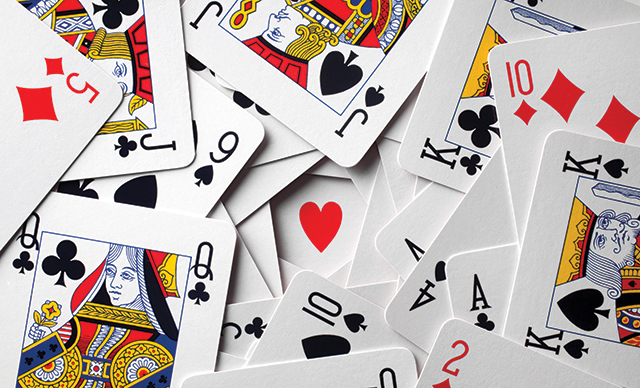


Poker has been one of the world’s most recognized gambling games. Romanticized in movies, condemned by gambling hawks, and loved by young guns with the ambition of winning millions playing it, poker has been more than just a game of chance – it has become a cultural phenomenon.
In fact, calling poker a “game of chance” is not exactly accurate. Or, at least this is one of the opinions. Opponents of poker have decried the game as something that takes no skill or understanding, but a mounting pile of evidence suggests otherwise.
Academics who have approached the game out of scientific curiosity have become some of the best players to enter it. Maria Konnikova, a famed female player, has found joy in not just writing and researching the psychological aspects of poker, but also using her unique insight to “beat the fish.”
Poker has naturally been looked down by people – a game that involves money and the loss of money if you are not “lucky” is definitely no way for people to be smart about their finances. Poker has received a bit of a bad reputation mostly because of ill-informed opinions.
Understandably, people who have never played the game – or not cared about it have been quick to judge it without showing sufficient understanding. They have ascribed the outcome of each hand and game to randomness.
But randomness is not the same as probability, and poker has proven to be a game where you can weigh the odds and make informed decisions. Sure, chance will still play a role in the outcome, but no amount of blind luck can make up for the fact of you understanding the odds and making decisions based on the best possible outcome.
Still, there has been some reluctance to introduce poker, although in places like the United States, nearly all licensed casinos offer it in every state. A stronger opposition has been shown to online poker, out of fears that it would lead to gambling addiction.
Although there is some merit in this, poker is mostly a game that takes a long time, can be played with very small stakes as little as $0.01 per hand which can be found at the best poker sites ranked on TimesUnion and which provide players with sustainable, safe, and robust poker experiences.
Poker is also generally considered to be safe enough compared to more addictive gambling activities, such as casinos and sports betting which are legal and are completely random.
In short, the argument that poker is a game of chance has mostly been levied by people with limited understanding of the game whereas actual examination of the best players in the world demonstrates that skill is but a small part in the big picture that is poker.
The biggest argument in favor of poker as a game of skill is the fact that there are hundreds of players who do so much better than the hundreds of thousands of other players. Of course, a similar argument can be made about pretty much anything else, but a lottery winner is unlikely to win again, whereas Daniel Negreanu and Phil Ivey are likely to repeatedly defeat any mid-tier player, or even high-tier ones.
This alone indicates that poker – although factoring in probability and a small degree of luck – is underpinned by something that can be reliably exploited to one’s gain. This is where the skill factor comes in and where the best players in the game will repeatedly deliver on robust results.
Of course, there have been arguments that poker is a game of chance put forward by the scientific community, but these studies still fail to explain how the same players continually achieve better results than everyone else.
The argument that poker is a game of chance is not so prosaic as “having the right kind of poker face.” Do not underestimate the psychological factors of the game – as Konnikova recommends. As a woman, she says that male poker players underestimate her frequently, but that is also why she has won more than $490,000 playing live poker action.
So, yes – bluffing plays a part, reading your opponent plays a part in the game, but nothing can replace the hard knowledge of you understanding the odds and what the likely outcomes per given hand are. If that were the case, Konnikova, a smart individual who started playing poker for research purpose would have never won as much money.
The truth is that both arguments still lack a bit of scientific evidence. Players such as Konnikova are the ones who are trying to provide hard facts that support the claim poker is indeed a game of skill. However, as every good researcher, Konnikova too is cautious and admits that she too sometimes gets lucky.
This is a natural part of the game’s progression, however. For doubters to be silence, though, more hard scientific data that does not look to support either claim needs to be put forward. The good news is that as poker becomes more relevant and interesting to players, so are more people beginning to take the debate more seriously.